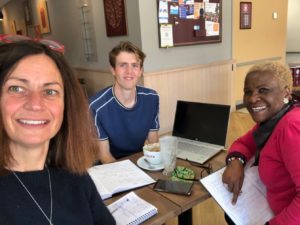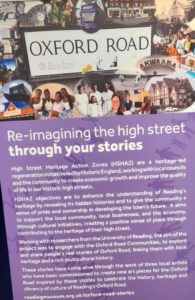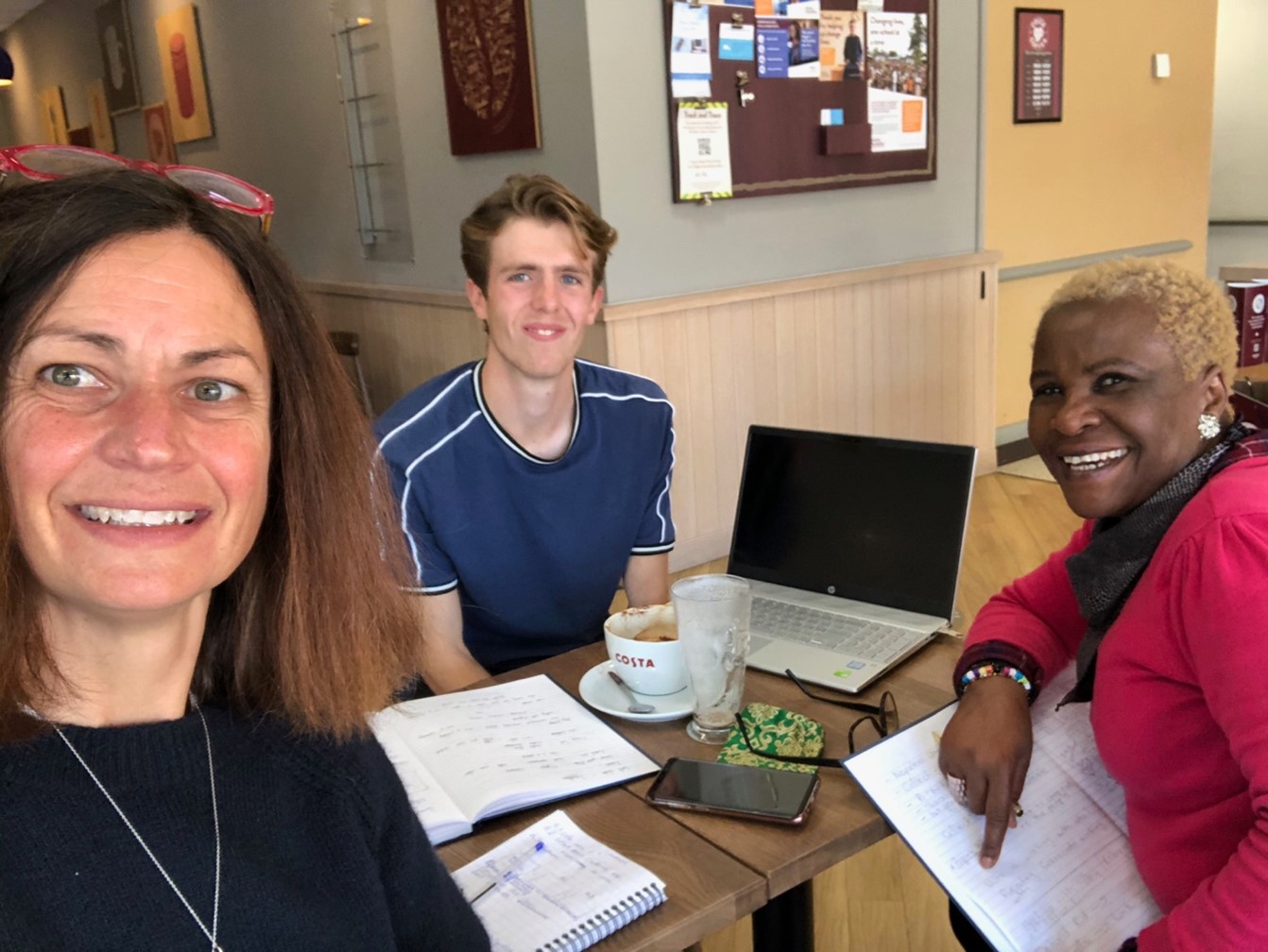We are pleased to publish our latest Think-Piece by Robyn Woronka, Postgraduate Researcher, Department of Geography & Environmental Science and researcher on the Oxford Road Storytelling pilot project in Reading
“You can’t teach an old dog new tricks” is not a generational excuse for racist comments, attitudes and behaviours
Racist attitudes and remarks are still experienced by the BAME community on a daily basis. Earlier this year, the Oxford Road Storytelling pilot project “Re-imagining the high street through your stories”, a project aiming to engage with the Oxford Road community in Reading, demonstrated the often-hidden remarks that devalue and demoralise marginalised communities. The project aims to explore people’s real stories of Oxford Road in Reading, connecting to local heritage and the rich multicultural history of the area.
In the brief windows of relaxed Covid restrictions last autumn, a small team of university researchers from the Human Geography department at the University of Reading set out to meet and interview local residents, business owners and community groups, to listen to their stories of Oxford Road, what it means to them, how they would like to see it celebrated through an arts and heritage project. Some conversations were informal, others were conducted via video call and in one case, a recorded conversation by four young women, recalling their memories of growing up on Oxford Road. One informal conversation was with an elderly participant, who spent much of his youth and working life on Oxford Road. After initially speaking with a researcher from a different racial background to himself, the agreed offer of formal participation was reduced to an informal chat, followed by an email, warning opinionated views of race could be an issue and “might say things that are not politically correct and offend you. We have tried to teach them how things are now but you can’t teach an old dog new tricks. They are very happy to talk to you but beware.” Whilst the intentions of this mediating family member, were well intentioned, almost apologetic, this experience of implicit racism expressed towards one of our research team members, is often hidden from those who haven’t shared this experience, those who are able to do their job without question, hesitation or harassment because of their race, gender or ability.

Community Research Team planning Covid safe pilot engagements on the Oxford Road – September 2020
At the time it was agreed that the conversation with this participant would go ahead with a different researcher. However, upon reflection, we, as a team of researchers, decided that no matter how valuable these stories were to the project, it would be difficult to continue involvement with this participant. We agreed it was not worth the emotional harm and disrespect felt by our colleague, a feeling that this continued engagement would represent condoning this behaviour and it was not acceptable. Parts of the initial conversation have been included in the project with a new awareness of covert racism that exists in everyday life.
As a result of this experience, we have created a zero-tolerance policy, for future interactions with participants in this project that explicitly says we will “not tolerate any forms of violence, aggression and abuse during correspondence, interviews or demonstrated in contributing material given to the project. This includes the use of offensive language and expression of beliefs that relate to age, sex, gender, sexual orientation, disability, colour, nationality, ethnic or national origin, race language, religion or political beliefs.” We agreed this will be adapted for future community projects and shared, in advance, with participants on all consent forms and communications.
Originally from Canada, I live in a semi-rural Hampshire village, juggling work, study and raising a family. Like many others, I was unaware of how much institutional privilege I have benefited from and the many excuses that often come with this privilege. As a result of working on the Oxford Road project, I better understand the need to recognise and address these excuses and have joined the Equality, Diversity and Inclusivity (EDI) committee within SAGES (School of Archaeology, Geography and Environmental Science) to learn more and become a better ally. My positionality has protected me from everyday racial discrimination and that is why I feel it is even more important to advocate for and with BAME colleagues, friends and strangers for a more diverse and inclusive society. I have learned much from colleagues from different backgrounds, listening and sharing experiences of learning within the university and how together, our diverse skillset and experiences can be a source of strength and solidarity, generating new ideas and making changes, one day at a time. As I reflect, I hear my colleague’s voice, recalling this experience from the Oxford Road project, as “a reminder of what we go through every day in our lives as black people. The struggle of discrimination/racism and excuses you find”. It is a call to attention to learn how to be anti-racist and better allies.

The Oxford Road Storytelling pilot project “Re-imagining the high street through your stories” is carried out by the University of Reading, led by Dr Sally Lloyd-Evans, Leader of the Participation Lab & Associate Professor in Human Geography, in collaboration with Reading Borough Council and Historic England.
Join our online seminar on 21 October, 1-2pm Sharing lived experiences of Oxford Road, Reading as part of the HSHAZ storytelling project, in celebration of Black History Month. See Oxford Road Storytelling seminar poster for more information.
Read more about the Oxford Road High Street Heritage Action Zone project:
https://www.reading.ac.uk/news-and-events/releases/PR850725.aspx
https://www.reading.gov.uk/planning/reading-high-streets-heritage-action-zone/

